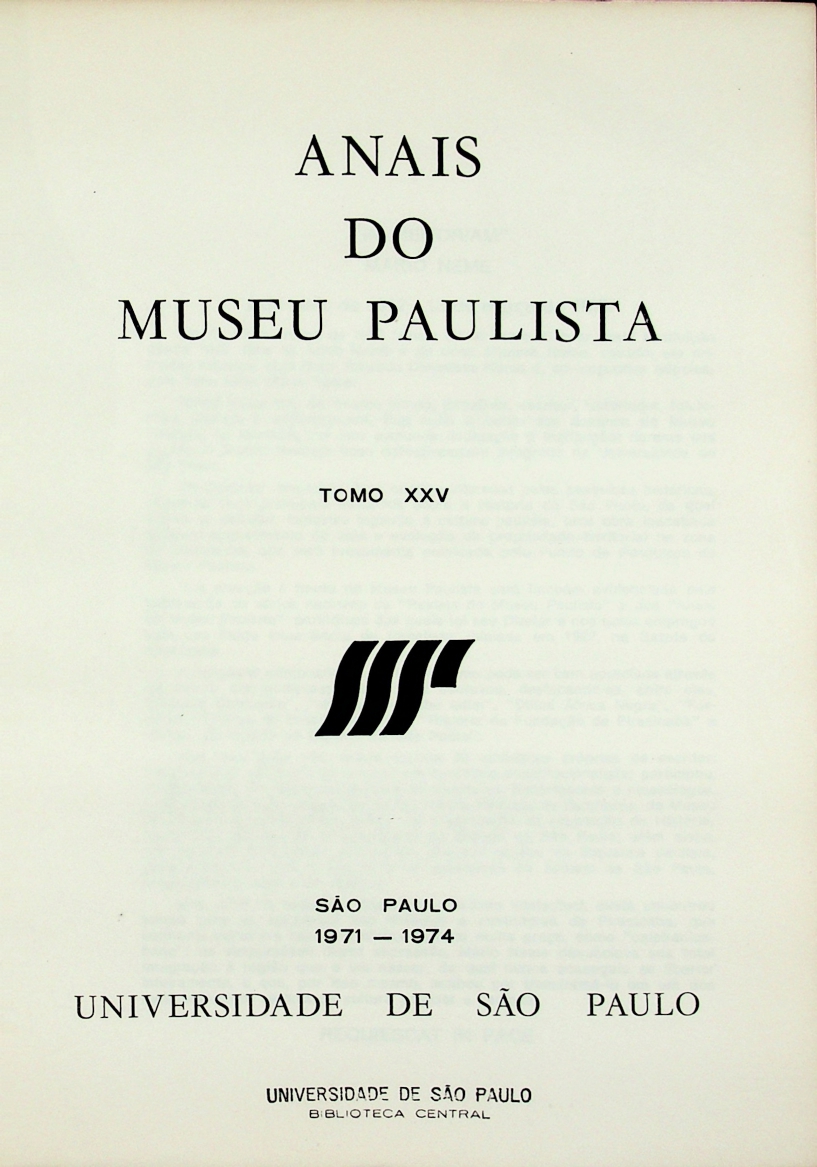Contribuição ao estudo de legislação sobre os núcleos coloniais no período imperial
DOI:
https://doi.org/10.11606/1982-02671974TomoXXVe5Resumo
The immigration directed to the colonial nuclei, founded in Espirito Santo, Bahia and Rio de Janeiro, began during D. João Vl’s reign. There were two opinions on immigration, during the Imperial period: one was turned towards the foundation of colonial nuclei and the other towards the large properties (plantations), as a substitute for slave work. The first experiments with colonial nuclei were defeated, because these nuclei were established in regions where the approach was difficult. There was also the question of the adaptation to the climatical conditions and to the cultural and social distinctions. Legal measures began to be taken from the middle of the nineteenth century. There was a beginning of regulamentation for the possesion of the land by foreign elements, in the general Law of Lands in 1850. The 1854 decree ruled the colonial nuclei, but it was only in 1867 that the Regulamentation for the State Colonies was approved. By this time several colonial nuclei were already established in more accessible countries with climatic conditions similar to Europe. In the “Província de São Paulo" the biggest preocupation was the introduction of immigrants as renters or hired people in the great properties, only in the last years of the Imperial Period was the instalation of colonial nuclei considered. Many were the debates in the Provincial Legislative Assembly and in 1887 the Regulation for the Immigration Office of the Província de São Paulo was approved, with a chapter on the colonial nuclei. The nuclei eventualy come to be considered as elements of immigrant fixation on the lands, as a guarantee of settlement and of agricultural development and also as a supplies to urban zones.
Downloads
Downloads
Publicado
Edição
Seção
Licença
Copyright (c) 1974 Miyoko Makino

Este trabalho está licenciado sob uma licença Creative Commons Attribution 4.0 International License.
Autores que publicam nesta revista concordam com os seguintes termos:
- Autores mantém os direitos autorais e concedem à revista o direito de primeira publicação, com o trabalho simultaneamente licenciado sob a Licença Creative Commons Attribution que permite o compartilhamento do trabalho com reconhecimento da autoria e publicação inicial nesta revista.
- Autores têm autorização para assumir contratos adicionais separadamente, para distribuição não-exclusiva da versão do trabalho publicada nesta revista (ex.: publicar em repositório institucional ou como capítulo de livro), com reconhecimento de autoria e publicação inicial nesta revista.
- Autores têm permissão e são estimulados a publicar e distribuir seu trabalho online (ex.: em repositórios institucionais ou na sua página pessoal) a qualquer ponto antes ou durante o processo editorial, já que isso pode gerar alterações produtivas, bem como aumentar o impacto e a citação do trabalho publicado (Veja O Efeito do Acesso Livre).



